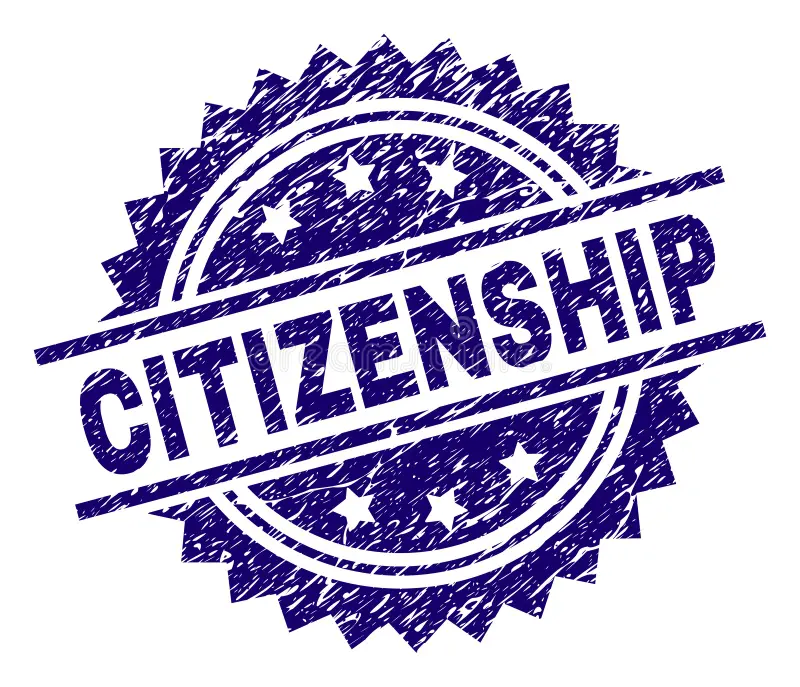
Birthright Citizenship and Legal Debates in the U.S.
Birthright citizenship has become a significant legal issue in the United States. A U.S. District judge recently blocked an executive order issued by President Trump, which attempted to alter this principle. This ruling highlights the ongoing debate over citizenship rights in America.
Understanding Birthright Citizenship
Birthright citizenship is a legal doctrine that grants automatic citizenship to individuals born within a country. In the U.S., this right is established under the 14th Amendment, ratified in 1868. The amendment ensures that all persons born or naturalized in the country are recognized as citizens. Originally introduced during the Reconstruction era, it sought to provide equality and overturn discriminatory laws that previously denied citizenship based on race.
Legal Foundation of the 14th Amendment
The 14th Amendment emerged as part of the broader effort to dismantle racial discrimination after slavery. It works alongside the 13th Amendment, which abolished slavery, and the 15th Amendment, which secured voting rights regardless of race. It also overturned the Dred Scott decision of 1857, which had denied citizenship to African Americans.
Principles of Citizenship
Nations generally grant citizenship based on two main principles: *jus soli* (citizenship by birthplace) and *jus sanguinis* (citizenship by ancestry). The U.S. follows both principles. The 1898 case *United States v. Wong Kim Ark* reaffirmed *jus soli*, confirming that children born in the U.S. to non-citizen parents are entitled to citizenship.
Trump’s Executive Order and Its Implications
President Trump sought to redefine the 14th Amendment by denying citizenship to children born in the U.S. to undocumented immigrants or temporary visa holders. His administration argued that such individuals were not “subject to the jurisdiction” of the U.S. However, this view conflicts with established legal precedents.
If implemented, the order would have impacted millions of children, including those born to immigrants on work visas. Without citizenship, these children would face difficulties in accessing government programs like Medicaid and SNAP.
Judicial Intervention and Future Outlook
Judge John Coughenour ruled against the executive order, calling it unconstitutional. The case was brought forward by four states, challenging the legality of Trump’s action. While the former president could pursue an amendment to change this policy, the final decision may ultimately rest with the U.S. Supreme Court.
अमेरिका में जन्मसिद्ध नागरिकता और कानूनी बहस
अमेरिका में जन्मसिद्ध नागरिकता (Birthright Citizenship) एक प्रमुख कानूनी मुद्दा बन गया है। हाल ही में, एक अमेरिकी जिला न्यायाधीश ने राष्ट्रपति ट्रंप के उस कार्यकारी आदेश (Executive Order) को रोक दिया, जो इस सिद्धांत को बदलने का प्रयास कर रहा था। यह फैसला अमेरिका में नागरिकता अधिकारों को लेकर चल रही बहस को उजागर करता है।
जन्मसिद्ध नागरिकता क्या है?
जन्मसिद्ध नागरिकता वह कानूनी सिद्धांत है, जो किसी देश में जन्म लेने वाले व्यक्ति को स्वचालित रूप से नागरिकता प्रदान करता है। अमेरिका में, यह अधिकार 1868 में पारित 14वें संशोधन (14th Amendment) के तहत स्थापित है। यह संशोधन सुनिश्चित करता है कि अमेरिका में जन्म लेने या प्राकृतिक रूप से नागरिक बनने वाले सभी लोग अमेरिकी नागरिक माने जाएंगे। यह संशोधन पुनर्निर्माण युग (Reconstruction Era) के दौरान लागू किया गया था ताकि नस्लीय भेदभाव समाप्त किया जा सके और उन कानूनों को पलटा जा सके जो नस्ल के आधार पर नागरिकता से वंचित करते थे।
14वें संशोधन की कानूनी नींव
14वां संशोधन दासता (Slavery) के उन्मूलन के बाद नस्लीय भेदभाव को समाप्त करने के व्यापक प्रयास का हिस्सा था। यह 13वें संशोधन के साथ कार्य करता है, जिसने दासता को समाप्त किया, और 15वें संशोधन के साथ, जिसने नस्ल के बावजूद मतदान का अधिकार सुनिश्चित किया। इसने 1857 के ड्रेड स्कॉट (Dred Scott) मामले को भी पलट दिया, जिसमें अफ्रीकी अमेरिकियों को नागरिकता देने से इनकार कर दिया गया था।
नागरिकता के सिद्धांत
विभिन्न देश नागरिकता प्रदान करने के लिए दो प्रमुख सिद्धांतों का पालन करते हैं:
- जुस सॉली (Jus Soli) – जन्म स्थान के आधार पर नागरिकता।
- जुस सैंगुइनिस (Jus Sanguinis) – पारिवारिक वंश के आधार पर नागरिकता।
अमेरिका इन दोनों सिद्धांतों का पालन करता है। 1898 के मामले यूनाइटेड स्टेट्स बनाम वोंग किम आर्क (United States v. Wong Kim Ark) ने जुस सॉली सिद्धांत की पुष्टि की, जिसमें कहा गया कि अमेरिका में जन्म लेने वाले गैर-नागरिक माता-पिता के बच्चों को भी नागरिकता का अधिकार होगा।
ट्रंप का कार्यकारी आदेश और इसके प्रभाव
राष्ट्रपति ट्रंप ने 14वें संशोधन की नई व्याख्या करने की कोशिश की, जिसमें कहा गया कि अमेरिका में अवैध अप्रवासियों (Undocumented Immigrants) या अस्थायी वीजा धारकों के बच्चों को नागरिकता नहीं मिलनी चाहिए। उनके प्रशासन का तर्क था कि ऐसे बच्चे अमेरिकी अधिकार क्षेत्र (Jurisdiction) में नहीं आते। हालांकि, यह दृष्टिकोण पहले से स्थापित कानूनी मिसालों का उल्लंघन करता है।
अगर यह आदेश लागू होता, तो यह लाखों बच्चों को प्रभावित करता, जिनमें कामकाजी वीजा पर आए भारतीय नागरिकों के बच्चे भी शामिल होते। बिना नागरिकता के, इन बच्चों को Medicaid और SNAP जैसी सरकारी योजनाओं का लाभ लेने में कठिनाइयों का सामना करना पड़ता।
न्यायिक हस्तक्षेप और भविष्य की संभावनाएँ
न्यायाधीश जॉन कॉगनॉर (John Coughenour) ने इस कार्यकारी आदेश को असंवैधानिक करार देते हुए इसे रोक दिया। यह मामला चार राज्यों द्वारा चुनौती के रूप में लाया गया था, जिसमें ट्रंप के निर्णय की वैधता पर सवाल उठाए गए। हालाँकि, ट्रंप इस नीति में बदलाव के लिए संविधान संशोधन (Constitutional Amendment) का प्रयास कर सकते हैं, लेकिन इस मुद्दे का अंतिम निर्णय संभवतः अमेरिकी सुप्रीम कोर्ट द्वारा लिया जाएगा।

